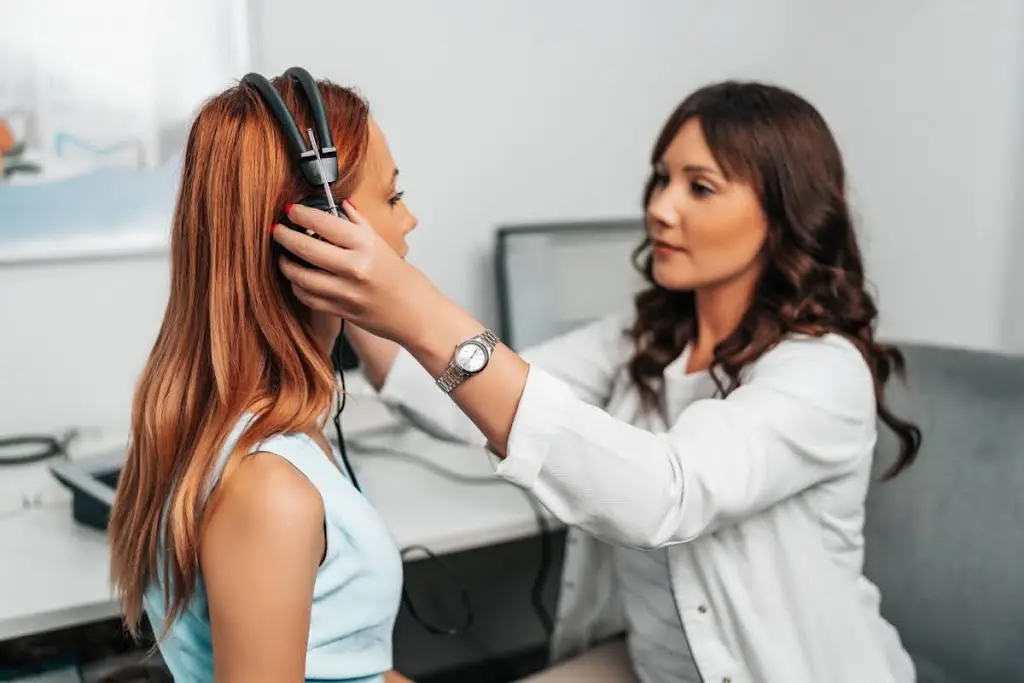Have you found yourself turning up the volume on the TV louder than usual or straining to catch someone’s words in a crowded room? Hearing issues often creep in slowly, making it easy to dismiss them until they start interfering with daily life. Regular hearing tests are a proactive step toward preserving your overall health and staying engaged with the world around you. These simple evaluations can uncover early signs of age-related hearing loss or other challenges, giving you the chance to take action before minor issues grow into major disruptions.
Nirvana Healthcare Network is breaking down why hearing tests are important for adults and what is covered during a typical exam so you can make informed choices about your well-being. Contact our care team today to learn more about routine hearing tests or the other preventative health screenings we provide as part of our many primary care services.
Common Causes of Hearing Loss in Adults
Hearing loss can stem from a variety of factors, and understanding them is key to managing the condition effectively. Age-related hearing loss is one of the most common culprits, often resulting from the natural wear on the auditory system. Exposure to loud environments, like concerts or construction sites, can also damage the delicate structures of the inner ear over time. Moreover, frequent ear infections, blockages caused by wax buildup, and certain medications can all contribute to hearing difficulties.
Signs You May Need a Hearing Test
Are you listening to what your body is trying to communicate with you? Even a small issue that starts as a mild inconvenience — like asking someone to repeat themselves — can evolve into a more serious hearing problem if left unaddressed. Paying attention to changes in your hearing and taking action early can significantly improve your quality of life. Here are some telltale signs that it might be time to schedule a hearing test:
- Difficulty hearing in noisy environments: Conversations in restaurants or social gatherings feel like a challenge.
- Frequent requests for repetition: You often ask others to speak up or repeat what they’ve said.
- Constant ringing in your ears: Tinnitus, or persistent ringing, could signal underlying issues.
- Muffled or unclear sounds: Voices and noises around you lack clarity or sharpness.
- Raising the TV or radio volume: Others might comment that your preferred volume is too loud.
- Struggling with phone conversations: Picking up voices over the phone feels increasingly difficult.
If any of these resonate, a hearing test can help uncover what’s happening and open the door to solutions like hearing aids or other devices.
What Happens During a Hearing Screening?
Many people feel anxious about hearing tests, but the process is simple and non-invasive. An ear exam usually begins with a physical inspection of the outer ear to check for blockages, infections, or abnormalities. Next, the audiologist will use specialized equipment to assess how well you can hear various tones and frequencies. Speech testing might also be included to evaluate how well you understand spoken words at different volumes.
These hearing tests measure the sensitivity of your ears and provide a clear picture of your hearing capabilities. The results can guide recommendations for treatment, such as hearing aids or other hearing devices.
Health Impacts of Ignoring Hearing Issues
Hearing problems can lead to permanent or more severe hearing loss that is left unaddressed. Adults with untreated hearing loss often experience social isolation as communication becomes increasingly difficult. This isolation can snowball into emotional challenges, such as anxiety or depression. Severe hearing loss has also been linked to cognitive decline and an increased risk of dementia. Physical health can take a hit, too, as balance issues associated with hearing problems may lead to falls and injuries. Taking a proactive approach with regular hearing tests can help you avoid these serious health consequences and maintain a higher quality of life.
How to Keep Your Ears in Excellent Shape
Keeping your ears in excellent shape begins with a few simple, everyday habits that go a long way in preserving your hearing. Start by protecting your ears from loud noises, such as concerts or machinery, by wearing proper ear protection and limiting prolonged exposure. When listening to music or podcasts through headphones, keep the volume at a safe level, especially if you’re using them for long periods.
Regularly cleaning your outer ear helps prevent wax buildup, but steer clear of cotton swabs, as they can push debris deeper and potentially cause damage. Staying hydrated and eating a balanced diet rich in nutrients like magnesium and zinc also supports the health of your auditory system. Most importantly, prioritize routine hearing tests as part of your overall wellness plan to catch any potential issues early and maintain optimal hearing health.
Call & Learn More About the Importance of Hearing Tests for Adults
Just because you have normal hearing now doesn’t mean you’re immune to future issues. Hearing health can change gradually, making it essential to stay ahead with routine hearing tests. Scheduling a hearing screening every few years — or sooner if you notice signs of hearing loss — helps identify concerns early. If problems do arise, modern hearing aids and other devices make it easier than ever to adapt and thrive.
Nirvana Healthcare Network is here to guide you every step of the way, from assessing your hearing to finding solutions that keep you connected to what matters most. Reach out today to schedule your next hearing test and take control of your auditory health!

